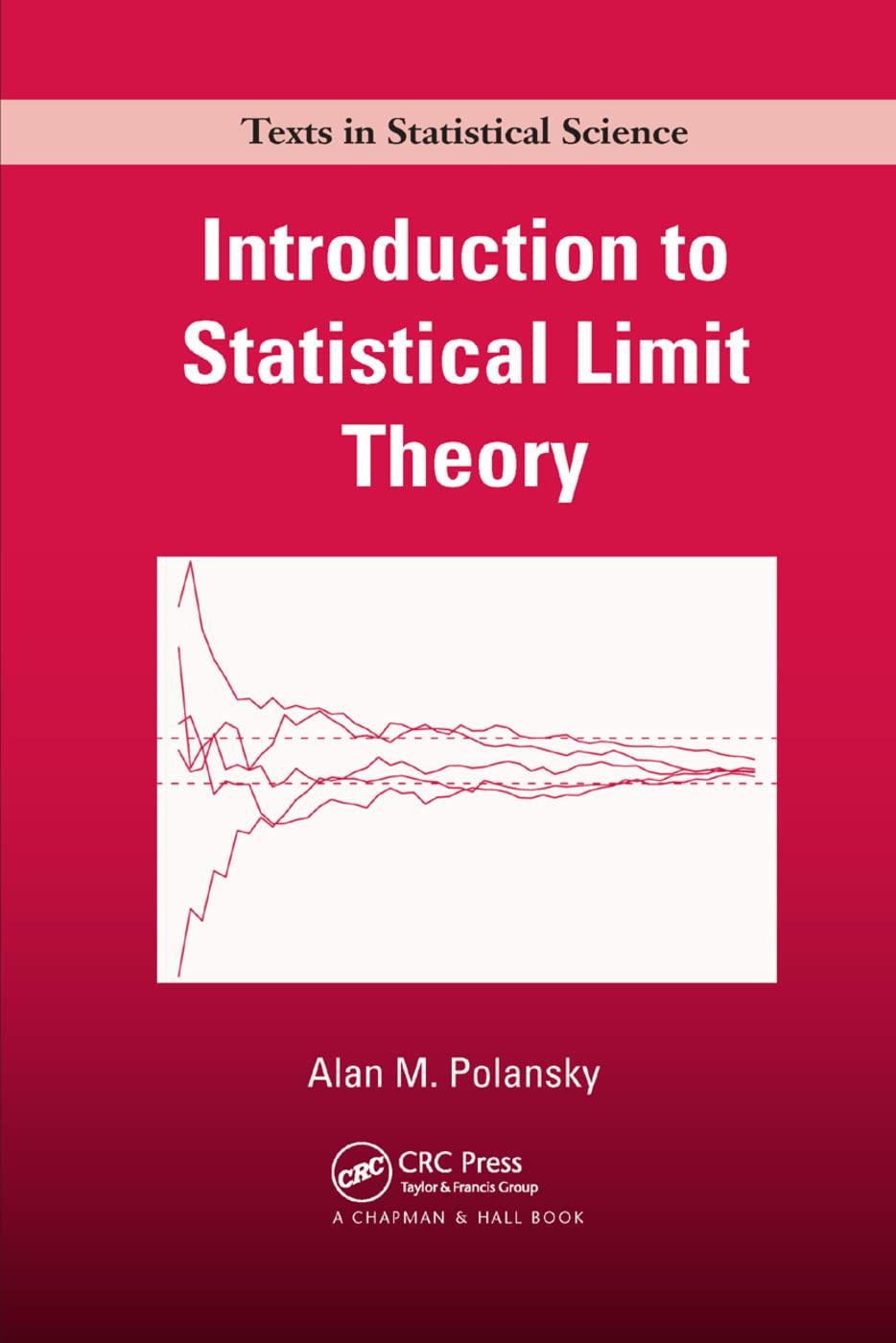Consider an arbitrary probability measure space ((Omega, mathcal{F}, P)) and let (X_{r}) be the collection of all
Question:
Consider an arbitrary probability measure space \((\Omega, \mathcal{F}, P)\) and let \(X_{r}\) be the collection of all possible random variables \(X\) that map \(\Omega\) to \(\mathbb{R}\) subject to the restriction that \(E\left(|X|^{r}ight)<\infty\). Define the operators \(\oplus\) and \(\otimes\) such that \(X \oplus Y\) is the function \(X(\omega)+Y(\omega)\) for all \(\omega \in \Omega\) when \(X \in X_{r}\) and \(Y \in X_{r}\), and for a scalar \(a \in \mathbb{R}, a \otimes X\) is the function \(a X(\omega)\) for all \(\omega \in \Omega\). Prove that \(\mathcal{X}_{r}\) is a vector space by showing the following properties:
a. For each \(X \in \mathcal{X}_{r}\) and \(Y \in \mathcal{X}_{r}, X \oplus Y \in \mathcal{X}_{r}\).
b. The operation \(\oplus\) is commutative, that is \(X \oplus Y=Y \oplus X\) for each \(X \in \mathcal{X}_{r}\) and \(Y \in \mathcal{X}_{r}\).
c. The operation \(\oplus\) is associative, that is \(X \oplus(Y \oplus Z)=(X \oplus Y) \oplus Z\) for each \(X \in \mathcal{X}_{r}, Y \in \mathcal{X}_{r}\) and \(Z \in \mathcal{X}_{r}\).
d. There exists a random variable \(0 \in X_{r}\), called the origin, such that \(0 \oplus X=X\) for all \(X \in X_{r}\).
e. For every \(X \in X_{r}\) there exists a unique random variable \(-X\) such that \(X+(-X)=0\).
f. Multiplication by scalars is associative, that is \(a \otimes(b \otimes X)=(a
b) \otimes X\) for every \(a \in \mathbb{R}, b \in \mathbb{R}\) and \(X \in \mathcal{X}_{r}\).
g. For every \(X \in X_{r}, 1 \otimes X=X\).
h. Multiplication by scalars is distributive, that is \(a \otimes(X \oplus Y)=a \otimes X+a \otimes Y\) for all \(a \in \mathbb{R}, X \in \mathcal{X}_{r}\) and \(Y \in \mathcal{X}_{r}\).
i. Multiplication by random variables is distributive, that is \((a+b) \otimes X=\) \((a \otimes X) \oplus(b \otimes Y)\) for all \(a \in \mathbb{R}, b \in \mathbb{R}\) and \(X \in X_{r}\).
Step by Step Answer:






